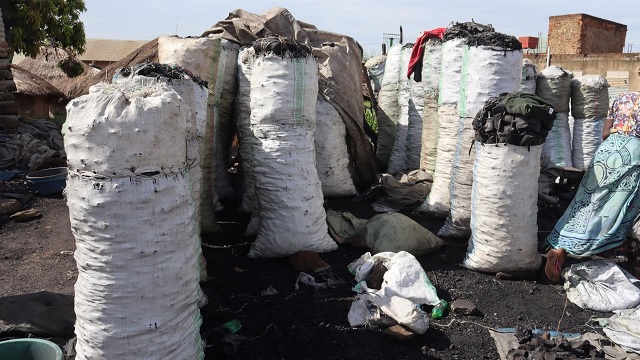Climate Change
Environmental Experts Urge Regional Strategy for Sustainable Charcoal in Sub-Saharan Africa
Environmental experts are calling for a unified regional approach and the adoption of sustainable production mechanisms to address the persistent challenges posed by charcoal use across sub-Saharan Africa. Despite significant environmental, health, and climate concerns, charcoal remains a deeply entrenched component of household energy consumption throughout the region.
This urgent appeal emerged from a lesson and knowledge-sharing forum held in Kampala on Thursday, which aimed to evaluate the impact of a decade of interventions in climate change mitigation and agroforestry.
Representatives from the Center for International Forestry Research (CIFOR) and the Food and Agriculture Organisation (FAO) unanimously agreed that it’s time for governments to candidly re-evaluate charcoal policies. They advocate for a shift from denial to coordinated, evidence-based action to ensure the sustainable management of this vital resource.
Phosiso Sola, CIFOR’s team lead for natural resource governance and livelihoods development, emphasised the enduring reality of charcoal’s role. “Let’s stop lying to ourselves; charcoal is not going anywhere soon,” she stated. “We need to acknowledge its importance in energy access and start building efficient, legal, and climate-sensitive charcoal value chains.”
Recent charcoal bans in Uganda and Kenya, implemented to curb deforestation, have highlighted a critical disconnect: charcoal remains the primary fuel choice for countless households unable to afford cleaner alternatives like cooking gas and electricity.
Sola pointed to a CIFOR study tracking charcoal flows across several African nations, revealing a steady increase in charcoal production from 2000 to 2016, even where bans were in place. “Even where bans exist, charcoal crosses borders as long as there is demand,” she noted, citing how Kenya’s 2018 charcoal ban led to a surge in imports from Uganda, and subsequently, from the Democratic Republic of Congo and South Sudan. This pattern underscores the critical need for a regional regulatory framework, as “one country’s restriction becomes another’s burden.”
The experts stressed that enforcement alone is insufficient. Without viable alternative fuels and cooking technologies, households are compelled to rely on a mix of energy sources. Sola suggested several immediate actions to mitigate the environmental impact:
- Improving Carbonisation Techniques: Upgrading traditional kilns to more efficient models could boost charcoal yield by up to 50% and reduce emissions by 40%.
- Promoting Sustainable Biomass Sources: Agroforestry, managed woodlots, and the use of invasive species like Euphorbia can provide renewable charcoal sources.
- Investing in Cleaner Cookstoves: More efficient stoves reduce wood consumption per meal, lessening pressure on forests.
- Certifying Sustainable Charcoal: Tracking and labelling charcoal from non-degraded sources can promote responsible production and consumer awareness.
“Policy has been too reactive,” Sola warned, advocating for proactive, regionally coordinated strategies.
Leonidas Hitimana, FAO Uganda’s head of forestry, echoed this sentiment, stating, “We are not going to run away from charcoal for at least 20 years. But it’s possible to produce it in ways that do not harm the environment.” He highlighted FAO’s support for bioenergy plantations and improved kilns, alongside efforts to rehabilitate degraded forests and utilise invasive species for charcoal production in central forest reserves.
Hitimana proudly noted that eleven charcoal producer associations in Uganda have already achieved quality certification from the Uganda National Bureau of Standards, demonstrating that “charcoal can support livelihoods while safeguarding the environment if we put the right systems in place.”8 He urged local governments to draft and enforce ordinances for sustainable charcoal production, emphasising the need for coordination among ministries of justice, environment, energy, and local government.
Both experts concluded that outright charcoal bans without viable alternatives risk driving production underground, exacerbating illegal trade and forest degradation. They advocated for a multi-stakeholder platform involving relevant ministries across East and Central Africa, recognising that “charcoal value chains do not respect national borders.9 Our responses can’t either.”
The consensus is clear: as charcoal’s integral role in Africa’s energy landscape persists, the path forward lies not in eliminating it, but in managing it wisely, transparently, and through collective regional action.
Comments



























